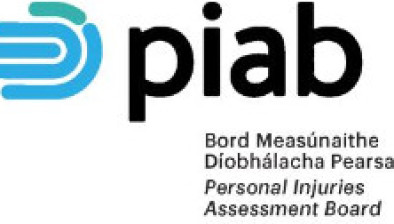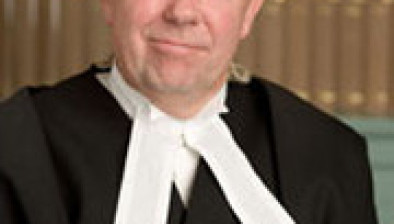High Court: Personal injuries claim dismissed where injury found not to be caused by road traffic accident

The High Court has dismissed the claim of a woman who alleged that she suffered a right shoulder injury following a 2016 road traffic accident, in circumstances where the medical evidence did not support her claim and where the court had regard to her failure to call her treating GPs and the GP whose report was submitted to PIAB.

About this case:
- Citation:[2024] IEHC 703
- Judgment:
- Court:High Court
- Judge:Mr Justice Anthony Barr
Delivering judgment for the High Court, Mr Justice Anthony Barr stated: “It is well established that a court can have regard to the fact that a party chooses not to call a witness who is likely to be in a position to give relevant evidence, where that witness is available to give evidence to the court.”
Background
In April 2016, the parties were involved in a road traffic accident which occurred on 16 April 2016, in which the defendant’s vehicle driven by an American tourist collided into the passenger side of the plaintiff’s vehicle as both were leaving a roundabout.
The defendant admitted liability for causation of the accident. The plaintiff alleged that she became aware of severe pain in her right shoulder within a few days following the accident, which ultimately required surgery in the form of an arthroscopic subacromial decompression in October 2022.
The defendant alleged that the findings on an MRI scan of the plaintiff’s shoulder carried out in 2017 revealed that the issues which led to the plaintiff’s surgery were not caused by the road traffic accident, and that there was no mention in the plaintiff’s records of any reference to shoulder symptoms until 10 months post-accident and even then, there was no mention of the road traffic accident in her GP referral letter or the radiological report following the MRI.
Thus, the central issue for determination was the causation of the injury to the plaintiff’s right shoulder.
Evidence
The High Court recounted the cross-examination conducted on behalf of the defendant, in which it was put to the plaintiff that there was no mention of her attending her GP in the days following the accident in her medical records contrary to her position, and that she had attended a different GP for the purpose of submitting a report to the Personal Injuries Assessment Board (PIAB), to whom her GP records had not been supplied.
It was also put to the plaintiff that she had been referred for MRI of her left shoulder in July 2016, rather than her right shoulder, and that she had essentially changed her story in that she had stated in evidence that she hit her head and right shoulder as a result of the impact, but had not mentioned this to her second GP. The defendant asserted that the first mention in her GP notes of any problem with her shoulder was on 30 January 2017, when the plaintiff was referred for an MRI of her right shoulder, and that the radiology report accompanying same stated that there was no history of trauma.
The defendant also highlighted that the first record referring to the right shoulder injury having been caused by the 2016 road traffic accident was in a record from Nenagh General Hospital and Croom Hospital, and put to the plaintiff that that record had been made after she commenced legal proceedings.
It was accepted by a witness giving medical evidence on behalf of the plaintiff that the onset of pain 10 months after a trauma would be a long time for symptoms to appear, and that 75 per cent of patients with the plaintiff’s issue would become symptomatic without trauma.
The medical evidence on behalf of the defendant suggested inter alia that it was unlikely that the symptoms in the plaintiff’s right shoulder had been caused by the accident some 10 months prior to the onset of symptoms, and the fact that she had spontaneous left shoulder symptoms indicated some degenerative process in both shoulders.
The High Court
Mr Justice Barr set out that the plaintiff had been involved in a workplace accident in November 2001 in respect of which she recovered €104,000 in compensation, and in 2003 was involved in a road traffic accident in respect of which she brought proceedings but was not successful. The judge also described the plaintiff’s accident in a B&Q shop in 2015, in respect of which she recovered compensation of €25,000 for injuries sustained to her right arm and wrist when a shelf fell onto her.
The court considered that the first contentious issue on which a finding was required was the adequacy of records kept by the plaintiff’s treating GP practice. Having regard to the plaintiff’s GP records from 1 October 2012 to 19 October 2017, Mr Justice Barr considered that the plaintiff was a frequent attendee at the practice and that the practice kept good records.
Arising from that finding, the court also determined that if the plaintiff had informed her GP that she thought her right shoulder symptoms were referable to the road traffic accident the subject of the proceedings, that would have been recorded in their notes. Accordingly, Mr Justice Barr found that the plaintiff did not complain to her GP of the onset of symptoms in her right shoulder until 30 January 2017, when it was first mentioned in their notes.
The court also found that the referral for the plaintiff’s MRI in February 2017 did not mention that an accident had occurred and that this supported the assumption that the plaintiff and her GP did not consider her right shoulder symptoms to be related to her 2016 accident.
Accordingly, the court concluded that on the balance of probabilities, the plaintiff’s right shoulder symptoms were not caused by the 2016 road traffic accident. Mr Justice Barr had regard to the fact that the plaintiff elected not to call her treating GPs or the GP who had prepared a report for submission to PIAB, noting that he was entitled to do so in line with the jurisprudence on this subject.
In this regard, Mr Justice Barr stated that the plaintiff “had been attending with their GP practice on a frequent basis for many years prior to the accident. She also attended with them on a frequent basis after the accident. Both of these doctors were in an ideal position to give evidence in relation to the onset of the plaintiff’s symptoms in her right shoulder and to furnish an opinion on whether those symptoms were related to the road traffic accident. It is significant that neither of them was called to give evidence at the trial of the action.”
The court continued: “More surprisingly, the plaintiff elected not to call the GP to whom she had been referred for the purpose of producing a report for submission to PIAB… The court is entitled to draw the inference that in deciding not to call these doctors, who appear to have been available to the plaintiff, she made a conscious decision not to rely on their evidence.”
Conclusion
Accordingly, in circumstances where the only pleaded injury was the plaintiff’s right shoulder injury and where the damage to the plaintiff’s car was discharged by the defendant’s insurers, the High Court dismissed the plaintiff’s claim.
Mary Daly v Ryans Investments Limited t/a Hertz [2024] IEHC 703











